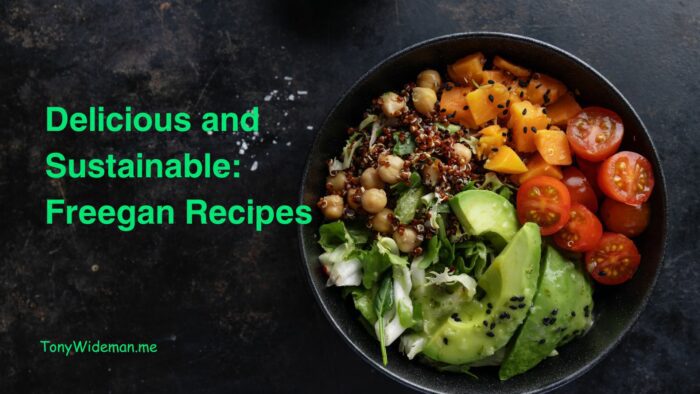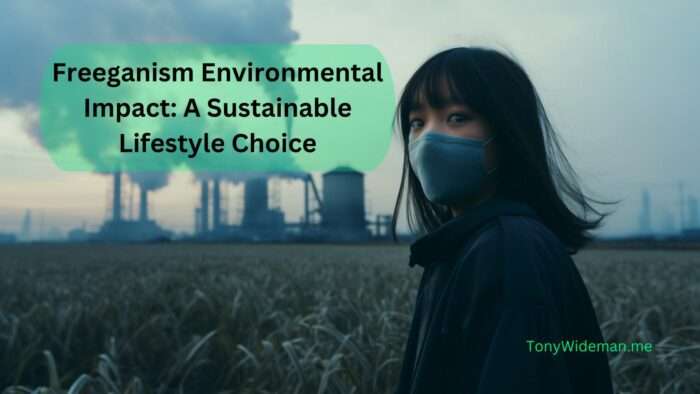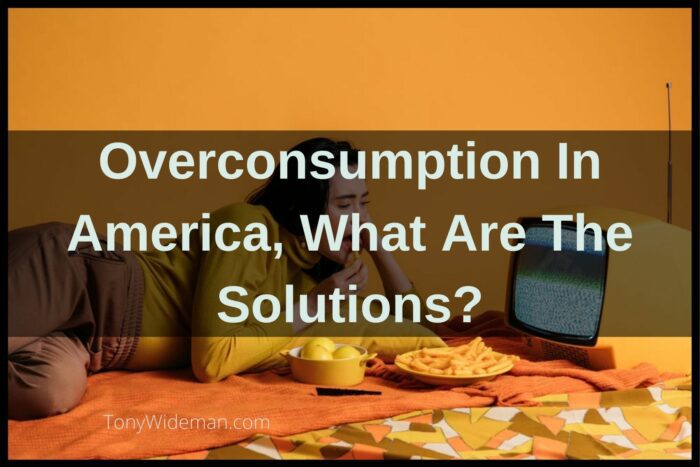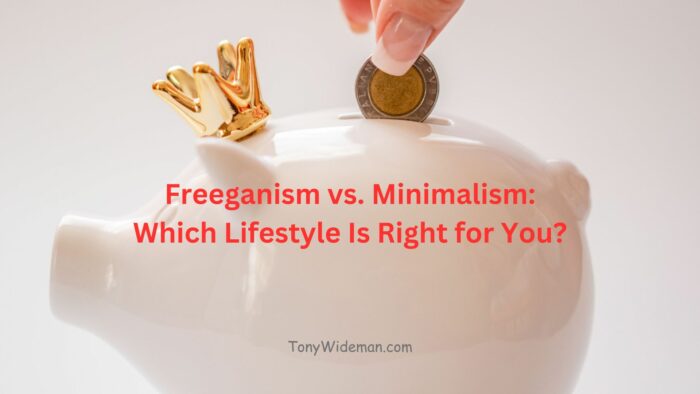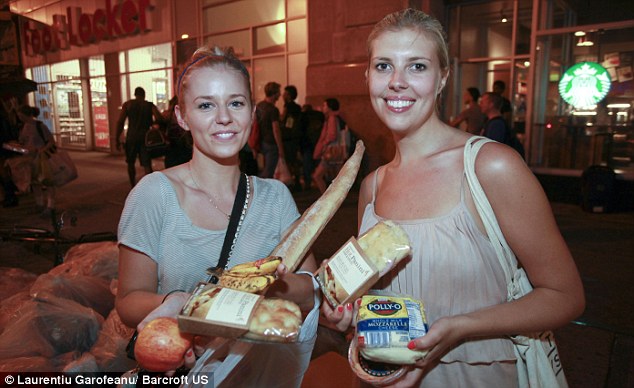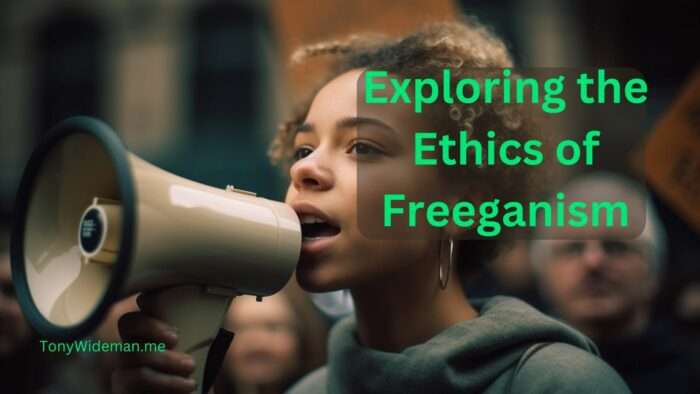The Vegan Scavengers Who Want To Change The World
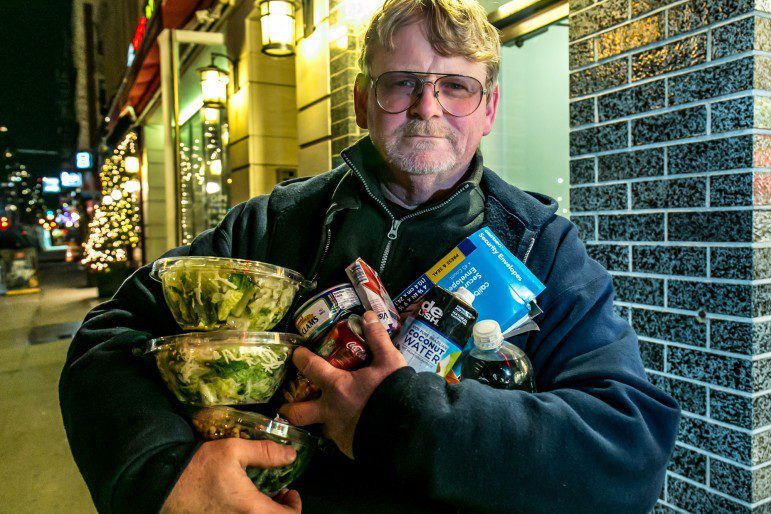
For most people, consumerism is an ingrained and unavoidable way of life. We work, we spend, we trash, and we buy again. It’s a cycle that seems all but inescapable in an industrialized society.
But a group of people that call themselves ‘freegans’ (vegan scavengers) think they’ve found a way out — a way to exit the consumer cycle and live off the grid. They scavenge instead of buy, volunteer instead of work, and squat instead of rent.
But there’s a catch — to live off the grid, they must eat out of the trash.
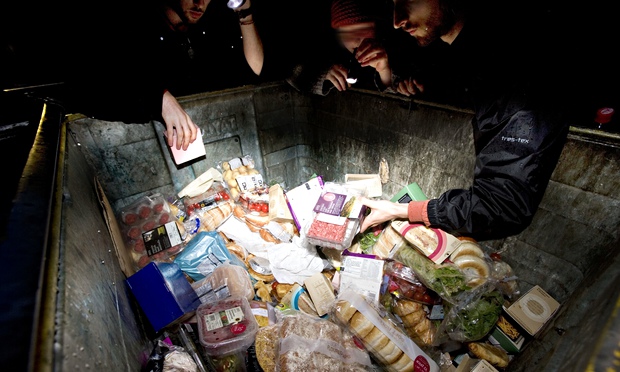
Freeganism is a lifestyle philosophy that emphasizes adopting alternative means to satisfy needs to minimize dependence on the “conventional economy.”
Freegans typically scavenge for discarded items, barter, or create goods to satisfy their needs.
Typical activities include dumpster diving for food and goods, hitchhiking for transportation, and squatting or camping for housing.
Frequently cited motives for adopting a Freegan lifestyle include opposition to corporate interests, distaste for overconsumption and wastefulness, and a desire for independence from employment.
Freeganism is practiced on a continuum, with participants ranging from casual to extreme. For example, casual Freegans may have no qualms about salvaging discarded goods but refuse to eat food found in a dumpster.
Contrastingly, one more extreme, Freegan, may live in a remote desert cave and refuse to use the money on philosophical grounds.
Most Freegans concede that when highly specialized services are required, such as medical care, using money is sometimes the only option.
Freegans get free food by pulling it out of the trash bins, a practice commonly nicknamed “dumpster diving” in North America.
Retail food suppliers such as supermarkets, grocery stores, and restaurants routinely throw away food in good condition, often because it is approaching its sell-by date (without thereby becoming dangerous) or has damaged packaging.
Freegans find food in the garbage of such establishments, which they say allows them to avoid spending money on products that exploit the world’s resources, contribute to urban sprawl, mistreat workers, or disregard animal rights.
By foraging, they believe they are keeping edible food from adding to landfill clutter, which can feed people and animals who might otherwise go hungry.
Freegans employ alternative living strategies based on limited participation in the conventional economy and minimal resource consumption.
Freegans embrace community, generosity, social concern, freedom, cooperation, and sharing in opposition to a society based on materialism, moral apathy, competition, conformity, and greed.
After years of trying to boycott products from unethical corporations responsible for human rights violations, environmental destruction, and animal abuse, many of us found that no matter what we bought, we ended up supporting something deplorable.
We realized that the problem isn’t just a few evil corporations but the entire system itself. (Freegan.info.).
Are They Vegan Scavengers?
The word free is compounded from “free” and “vegan”. Vegans avoid products from animal sources or products tested on animals to avoid harming animals.
Freegans claim to take this a step further by recognizing that in a complex, industrial, mass-production economy driven by profit, abuses of humans, animals, and the earth abound at all levels of production (from acquisition to raw materials to production to transportation) and in just about every product we buy.
A vexing question for animal rights advocates is what to do about non-vegan food and other items recovered from the trash.
For many, the term “freegan” has inaccurately come to mean people who will eat animal products if they can obtain them without purchasing them, overshadowing the critique that freeganism offers of mainstream consumerism.
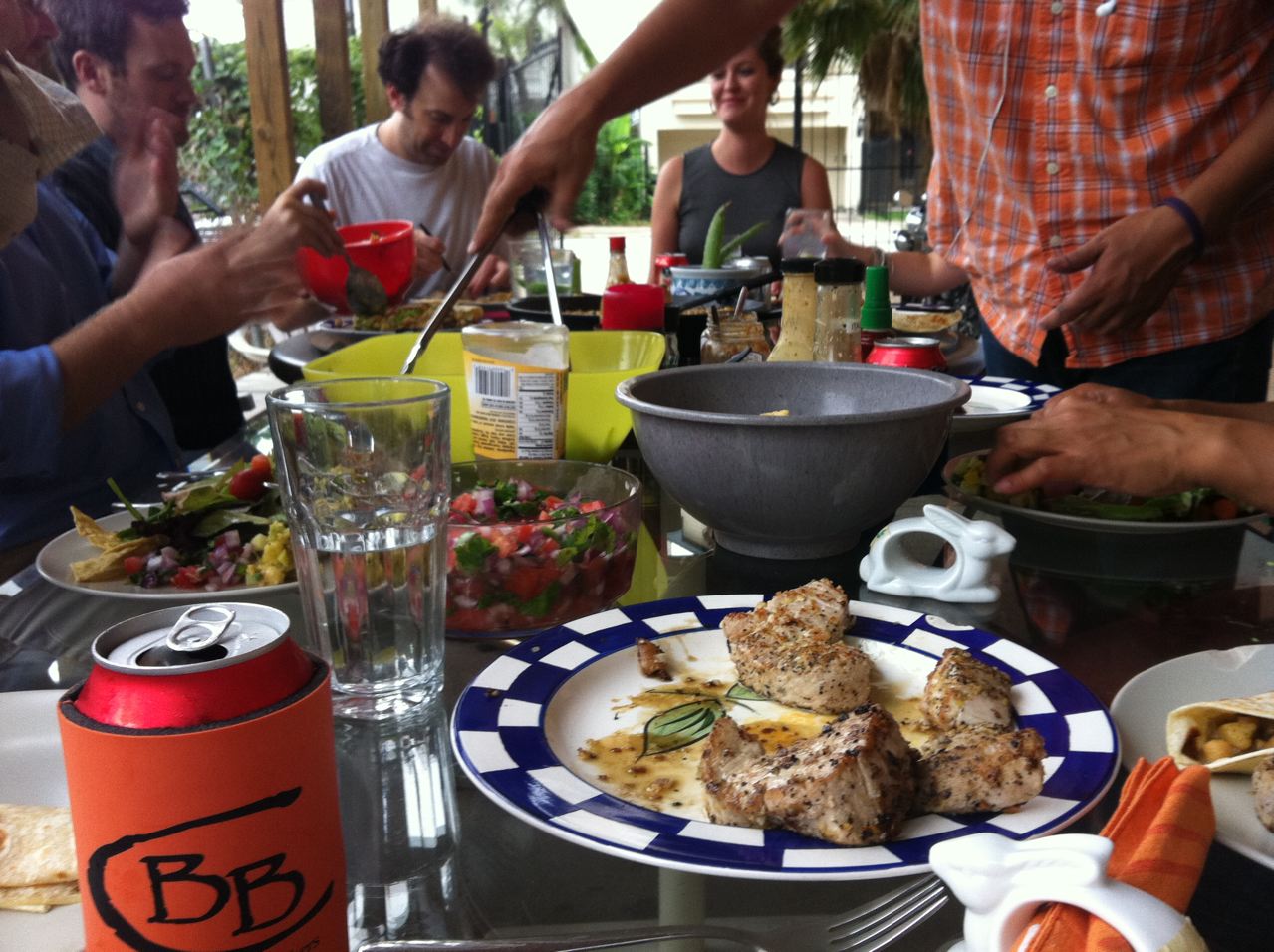
Some freegans are strictly vegan, and others are not.
One perspective holds that anything from an animal source, no matter how obtained, should be shunned because consuming such products legitimizes using animals as raw materials.
Others feel that waste products of animal exploitation make the death and suffering of the animals exploited for them even more meaningless.
Moreover, consuming animal products from trash does nothing to support the corporations that benefit from animal exploitation.
By not consuming these products, we are taking up more landfill space.
For those who see foraging as a way to rekindle our connection to ancient human foragers, it is compelling to note that even before humans hunted, it is not unlikely that they occasionally consumed the remains of an animal killed and partially eaten by a carnivore.
Some freegans recognize that there is nothing morally wrong with eating animal products from trash but are turned off by the idea of eating an animal.
Some folks will eat foods with subtle animal ingredients, such as muffins, but won’t eat anything as blatant as a milkshake or chicken breast.
Others choose to abstain from animal ingredients for strictly health reasons.
“Regardless of one’s position on the ethical appropriateness of eating recovered animal products, one thing is clear: eating dumpster food‚ any dumpster food‚ causes less suffering to animals, less destruction of our planet, and less exploitation of workers‚ than even the most responsibly produced, vegan, organic store-bought items.” (Freegan.info).
Discarded meat: to eat it or not to eat it?
.
One-third of World Food Production is Being Discarded
According to a recent study by the Food and Agriculture Organization of the United Nations (FAO) on Global food losses and food waste, one-third of food products are discarded in good condition throughout the food supply chain process.
Of these, 900 million tons are discarded in production, distribution, and retail; the remaining 400 million are discarded at final consumption.
North America and Oceania top the regional chart with the most food wastage, with around 300 kg of discarded food per person a year, followed by Europe and Latin America.
Retail stores can throw away large quantities of food. This usually consists of items that have reached their best-before, sell-by, or use-by dates.
Food that has passed the best-before and sell-by dates, and even some that has passed the use-by date, is still edible at the time of disposal, but stores have widely varying policies regarding handling excess food.
Some stores put effort into preventing access to poor or homeless people, while others work with charitable organizations to distribute food.
Retailers also contribute to waste due to their contractual arrangements with suppliers. Failure to supply agreed quantities renders farmers or processors liable to have their contracts canceled.
Consequently, they plan to produce more than is required to meet the contract to allow for a margin of error. Surplus production is often disposed of.
“Of course, it would be best if stores stopped overstocking,” writes Freegan Katharine Hibbert in The Guardian, “but waste is built into many shops’ business models.
If they want to offer every customer an impression of abundance and freshness, even the last one of the day, they have to throw away the leftovers. I’ve eaten enough croissants from big supermarket chains’ bins to know they aren’t blameless.
That wasted food doesn’t belong in the landfill. When dumped, it doesn’t compost – it rots anaerobically, emitting methane, a potent greenhouse gas. However, alternative ways to cope with it are also flawed.
Some charities do a great job of redistributing surplus food from manufacturers to homeless shelters, but they can’t collect all the food from supermarket bins.
Although the quantities are large by domestic standards and perfectly edible that day and probably the next, sending a refrigerated van to collect it is too slow and expensive.
Since the foot and mouth outbreak, waste food can no longer be turned into swill for pigs, so anaerobic digesters, which harness the energy of the heat and gas emitted as the food decomposes, are a solution that many supermarkets now rely on to claim that they create zero food waste.
While that’s better than sending the food to landfill, it’s an inefficient way to release the energy in the food”.
Existing freegans (vegan scavengers) say that people are joining their ranks by the week. But these are not dippy hippies or trampy hobos. They are educated people who seek an alternative way of life outside the economic norms.
We live in an economic system where sellers value land and commodities only relative to their capacity to generate profit. Consumers are constantly bombarded with advertising telling them to discard and replace the goods they already have because this increases sales.
This practice of affluent societies produces enormous waste, and many people can be fed and supported simply on trash. As freegans, we forage instead of buying to avoid being wasteful consumers and to politically challenge the injustice of allowing vital resources to be wasted. At the same time, multitudes lack necessities like food, clothing, and shelter.
Despite society’s stereotypes about garbage, the goods recovered by freegans are safe, usable, clean, and in perfect or near-perfect condition. This is a symptom of a throwaway culture that encourages us to replace our older goods with newer ones constantly and where retailers plan high-volume product disposal as part of their economic model.
Some urban foragers go at it alone, others dive in groups, but we always share the discoveries openly with one another and with anyone along the way who wants them. Vegan Scavengers (Freegan.info)
Take My Challenge! Please allow me to empower you and share how I create a free lifestyle.


